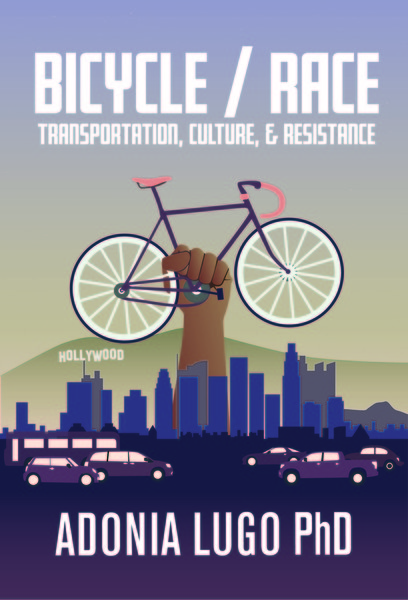 |
| 5th and Pine at a quieter moment |
The only thing I've found predictable about my automobilized fellow road users' behavior is that they are not going to want to stop. For a long time I was in the habit of watching grilles and bumpers rather than trying to make eye contact, because so many times I have looked into a vehicle and seen a person's eyes trained on a cell phone or just staring dead ahead as the car enters an intersection. At least if I watch the front of the steel cage coming at me, I know that I need to stop because the driver doesn't feel like it.
The very thing that I love about carfree transportation, my connection with the urban life around me, is the opposite of what a lot of drivers expect to encounter. The act of driving seems to promise some kind of detachment from the spaces that they travel through; this is why having to slow down and stop for other road users seems so high stakes to these people strapped inside their massive toys that they can stop and start with a light tap of the foot. Maybe to them making eye contact is a sign of weakness. Tinted windows and car size certainly make statements about social power, specifically the driver's power to refuse contact with other road users. When drivers fail to meet my eyes, I see the same dynamic at play. But maybe they just plain don't see me because they aren't expecting to see anything. Which is the less frustrating explanation?
I have heard motorists and pedestrians complain about this same behavior in bicyclists: traveling without regard for other road users. I wonder if the people on bikes who choose to whiz past kids on sidewalks or shoot into intersections against traffic signals think they're entitled to behave this way because of the same belief that a powerful person in transit stops for no one. Or, again, maybe they just aren't paying attention. Even if the people who advocate for separated facilities for bicyclists succeed in convincing municipalities that concrete barriers are the only solution to the dangers of aggressive traffic, they aren't facing the fact that bicyclists can make those same aggressive moves on off-street paths. One time when I was riding on the Burke-Gilman Trail a pedestrian yelled at me for failing to stop for her to cross the path. She was right, I should have stopped, and I bet she dealt with this sort of behavior on a regular basis.
With our current norms for traffic behavior, bicyclists and motorists are not on equal footing. This is not to say that we can't share roads, just that pretending that bicyclists have the power to assert ourselves in all cases makes no sense to me. Plenty of people are out there actively endangering us through crappy behavior because car ownership is an important marker of social power, and once they get into their gas guzzling status symbol, they're not giving an inch to the worms on the outside. Plenty of people are just plain not paying attention cause they're cosseted in the increasingly stimulating environment inside their cars. Without confronting the power dynamic at play on the road, we seem to reproduce the same unequal relations between bicyclists and pedestrians, or even between faster and slower bicyclists, in spaces reserved for non-motorized travel. Eye contact is a nice ideal, and I make an effort to communicate with other road users when I'm walking, biking, and driving. But I can't force people to return my gaze, so I ride as carefully as I can.

